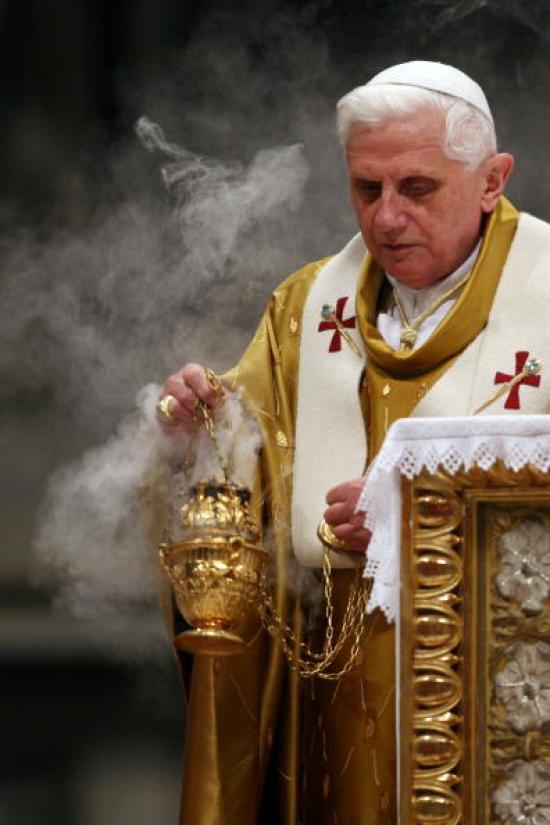By Mario A
Politics
April 21, 2008
http://www.gather.com/viewArticle.jsp?articleId=281474977328620&grpId=3659174697241980&nav=Groupspace
With Pope Benedict XVI ending his visit to the U.S., the biggest question will be whether his very public efforts to address the Catholic priest sex scandal that has rocked the Church for the past six years have helped begin the healing process among disillusion faithful; faithful who felt betrayed by the way the Church initially covered it up, then vehemently denied it, then quickly tried to quell the controversy by paying off the alleged victims.
At this point, the scandal has exposed more than 5,000 abusive priests and revealed more than 13,000 victims. It has caused the Church more than $2 billion in litigation and severely bruised the image of the institution. In many neighborhoods, parishioners are still skeptical of priests who pat a young boy on the head or make physical contact with children in any way.
 |
| Blowing smoke? |
Shooting the Messenger
The biggest revelation of the scandal was not the number of priests who were full-blown sexual predators in every sense of the world. It was, rather, the rampant corruption within the institution of the Catholic Church in its handling of these guilty priests. Instead of disciplining them and turning them over to the authorities, it shuffled them off to other, unsuspecting parishes where they were able to resume their pedophilic behavior.
In fact, it's hard to point to any instant in recent history when the Church itself has identified and punished clergy discovered to be abusing their young victims. The behavior of such priests only come to light when the victims themselves point them out and the law steps in, supplanting the Church's "internal review process." Even then, the Church rarely - if ever - accepts guilt until the victims win their cases in court.
Much was made in the media about the fact that, during his visit to the U.S., Pope Benedict met privately with a number of victims to offer them "encouragement and hope." Yet, interestingly enough, only a few of the victims considered their meeting a positive experience; the others were disappointed. Among those who were not invited, many remained critical of the Pope's actions, demanding that the Pope do more than express sorrow and regret: He must end the Church's pervasive practice of protecting its guilty priests.
But will he? The answer may lie in the Pope's own words to reporters: "It is difficult for me to understand how it was possible that priests betrayed in this way their mission to give healing, to give love of God to these children," he said.
A careful review of the statement reveals that Pope Benedict is actually placing all the blame on the individual priests themselves. He does not fault the institution that, through its policy of shifting guilty priests to other parishes, encourages and protects them - and worse, places potentially more unsuspecting victims at risk. As far as Pope Benedict is concerned, it appears to be business as usual for the Catholic Church.
Mario's column, Point of Convergence, published to Gather Essentials: Politics, looks at the American political landscape and the people and events that make the news. Mario is a culture trend expert who frequently speaks on cultural, political and social issues that impact modern life. Keep up with Mario's other postings and Gather activity by joining his Gather network. Just click popculture and select the orange "Connect" button on the left side of the page.
Any original material on these pages is copyright © BishopAccountability.org 2004. Reproduce freely with attribution.